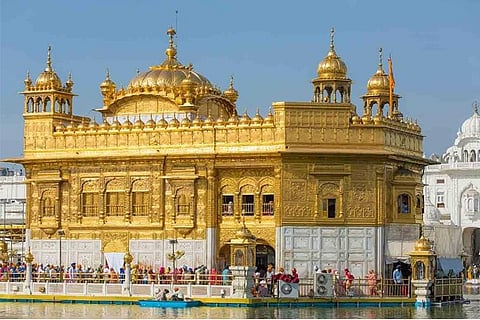

New Delhi
While the wilful violation of what is regarded as sacred is unforgivable, there is no place in a democracy, governed by the rule of law, for mob lynchings of those suspected of having committed a sacrilegious act. As shocking as the incidents is the reaction, most of it in the form of a studied silence on the lynchings. While there have been loud reprimands about the alleged attempts to commit sacrilege, which still need to be established, there is a lack of similar concern about the behaviour of those who beat the two people to death.
It is not merely Sikh religious bodies but mainstream political parties across the spectrum that are responsible for this skewed focus. Worse, some such as Congress leader Navjot Singh Sidhu have gone to extremes by demanding that those accused of sacrilege be hanged in public, a spectacle that has no place in any civilised country. Even Chief Minister Charanjit Singh Channi’s attention has been directed largely at the attempted sacrilege.
While there are some leaders from the Congress and other parties who have been bold enough to condemn the killings and demand action against the accused, these are far and few in a State that is headed for the polls next year. Given this, the silence is partly a result of political calculation; no party wants to say anything that is capable of being portrayed, or manipulated, as being accommodative of religious insult. The Shiromani Akali Dal (SAD) appears to have already sniffed a political opportunity by blaming the Congress government for not preventing blasphemous acts.
It may be too far-fetched and idealistic to believe that religion can be totally separated from politics when elections are around the corner. But there is a case for not using incidents such as these to rouse angry and potentially divisive sentiments. There is no space for a political discourse that normalises mob vigilantism and raises all manner of fears about purported threats to religion or religious identity.
At a larger level, Indians need to re-examine their proclivity for being so easily offended on religious matters. Hurt sentiments, real or drummed up, have been used for a number of reasons ranging from browbeating political opponents, stifling free speech, to banning books, forcing films off the screens, and stoking divisions in society. The blatant and repeated misuse of Article 295 (a) of the Indian Penal Code, which is a kind of egalitarian blasphemy law insofar as it covers all religions, is a case in point. While the courts need to be more judicious in entertaining cases filed under the law, there is no place for parties and leaders to manufacture outrage.
Visit news.dtnext.in to explore our interactive epaper!
Download the DT Next app for more exciting features!
Click here for iOS
Click here for Android